Yesterday I had the opportunity to witness again the moment when a close Jesuit said his final “yes” to God (for the second time, because he already made his perpetual vows in the novitiate). During the ceremony, Romek decided to break some convenances and said a few words of his own after the Gospel, many of which reminded me of what is important, what gives life and what burns up the heart.
First, he told us about a dream he had a few years ago, in which he discovered three important rules of life: love people, trust life and live through everything. Even though I had heard this story before, the words about trust resonated strongly within me. God is constantly calling me to trust the journey and the process, and I am still impatient. I would like to know the plan and see the goal on the horizon. During my last retreat, this truth about trusting life came to me in the form of words from a song by Dream Theater: “let the story guide me”. So the story goes on and takes me forward step by step.
A large part of the sermon was filled with Romek’s understanding of the vows, which he was soon to renew in front of everyone, before the Eucharistic Jesus. This understanding is very close to my heart and reminds me that although my vows expired over two years ago, I still want to live them with all my heart here and now, where God has placed me.
Chastity is loving people in deep relationships, without fear, without faking, without selfishness, it means constantly expanding your heart and learning to be for others. Obedience is trusting that God works in the sinful Church, it means freedom to stick to His plan and not your own ideas, it means brotherhood and conscious cultivation of small gestures of love despite various prejudices. Poverty is accepting yourself and others in your greatest weakness, allowing yourself to be dependent and vulnerable, it means simplicity on many different levels.
These three rules of the Gospel are for everyone who wants to follow Jesus, because, as Romek put it: to say “yes” to Him is to say “yes” to life within yourself and to let this life flow into the world. One sentence especially resonates with me today: “When I think about Him, everything in me is deeply moved.” I can relate to this. So it is.
You can listen to the entire ceremony here (with English translation!).
Photo by Asia Wiśniewska. More photos here.
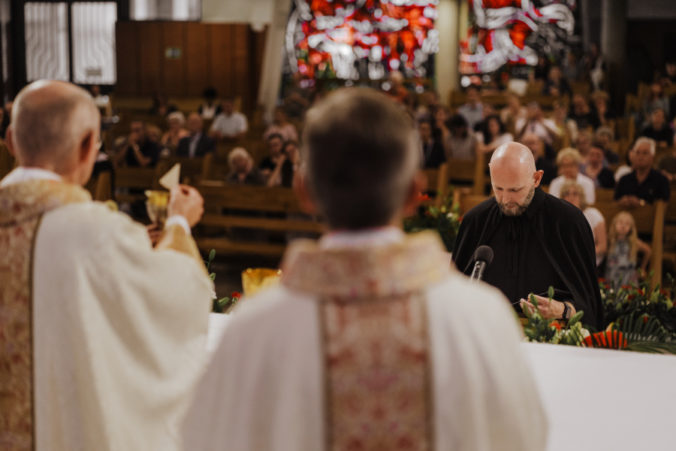
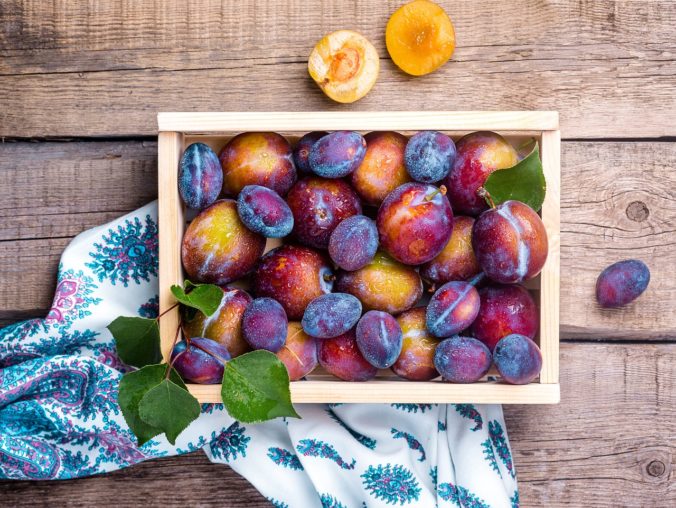
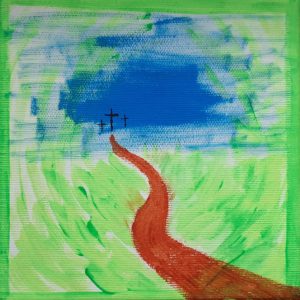 Silence
Silence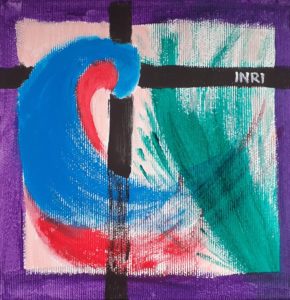 The Lamb will shepherd them
The Lamb will shepherd them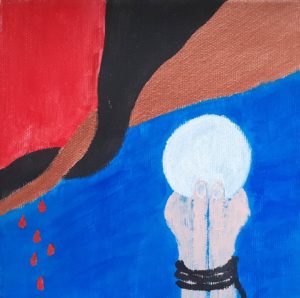 The Eucharist in action
The Eucharist in action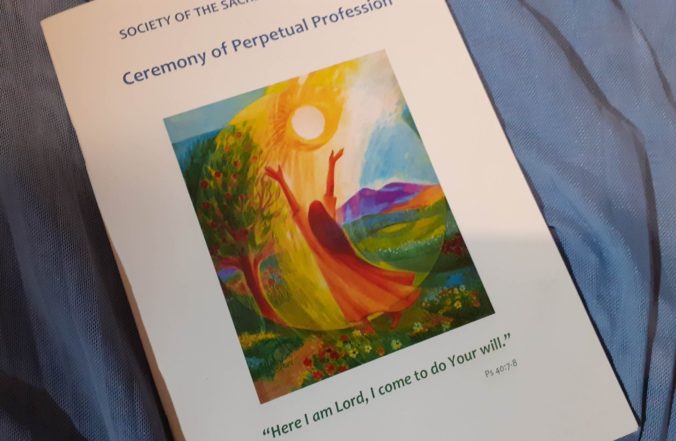
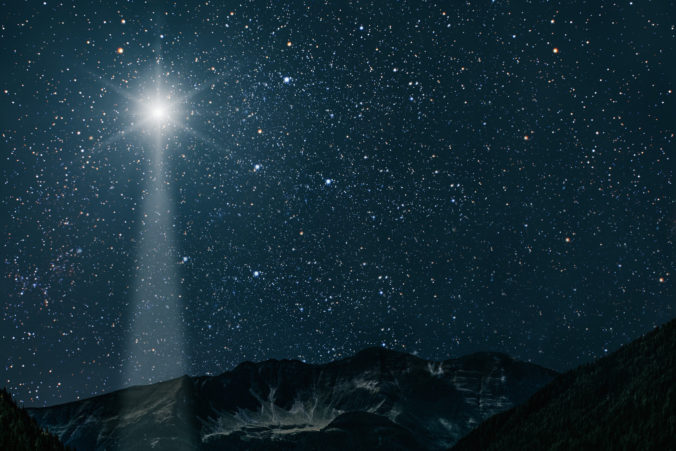
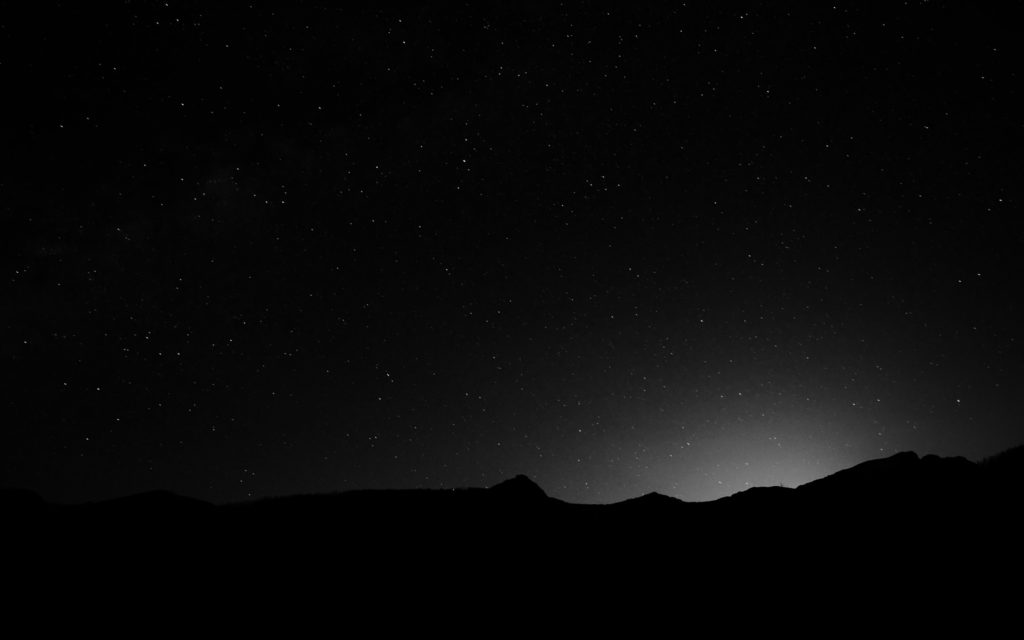 In my Advent this year, so far I find much more darkness than light. Maybe this will make the experience of Israel waiting for the Messiah a little closer to me. When lack of strength and hope creeps into life, longing becomes natural. You want to cry to God that salvation may come at last. He always responds to that call, but almost always quite differently than we might expect.
In my Advent this year, so far I find much more darkness than light. Maybe this will make the experience of Israel waiting for the Messiah a little closer to me. When lack of strength and hope creeps into life, longing becomes natural. You want to cry to God that salvation may come at last. He always responds to that call, but almost always quite differently than we might expect. One of the most important passages in the Gospel for me is the anointment in Bethany. Mary breaks a bottle of precious Nard oil and its scent fills the whole house. This fragrance accompanies me every year during the Holy Week, because a creative Franciscan priest from Poznań once decided to give all participants of the liturgy a tiny vial of real nard, and since then I always solemnly open it on Holy Monday. This scene was also the subject of my contemplation at this year’s retreat and made me realise how much I have recently focused on caring for the bottle, and not for the precious oil inside. It was then that I desired the experience of Paschal fragrance to spread over more of my life.
One of the most important passages in the Gospel for me is the anointment in Bethany. Mary breaks a bottle of precious Nard oil and its scent fills the whole house. This fragrance accompanies me every year during the Holy Week, because a creative Franciscan priest from Poznań once decided to give all participants of the liturgy a tiny vial of real nard, and since then I always solemnly open it on Holy Monday. This scene was also the subject of my contemplation at this year’s retreat and made me realise how much I have recently focused on caring for the bottle, and not for the precious oil inside. It was then that I desired the experience of Paschal fragrance to spread over more of my life.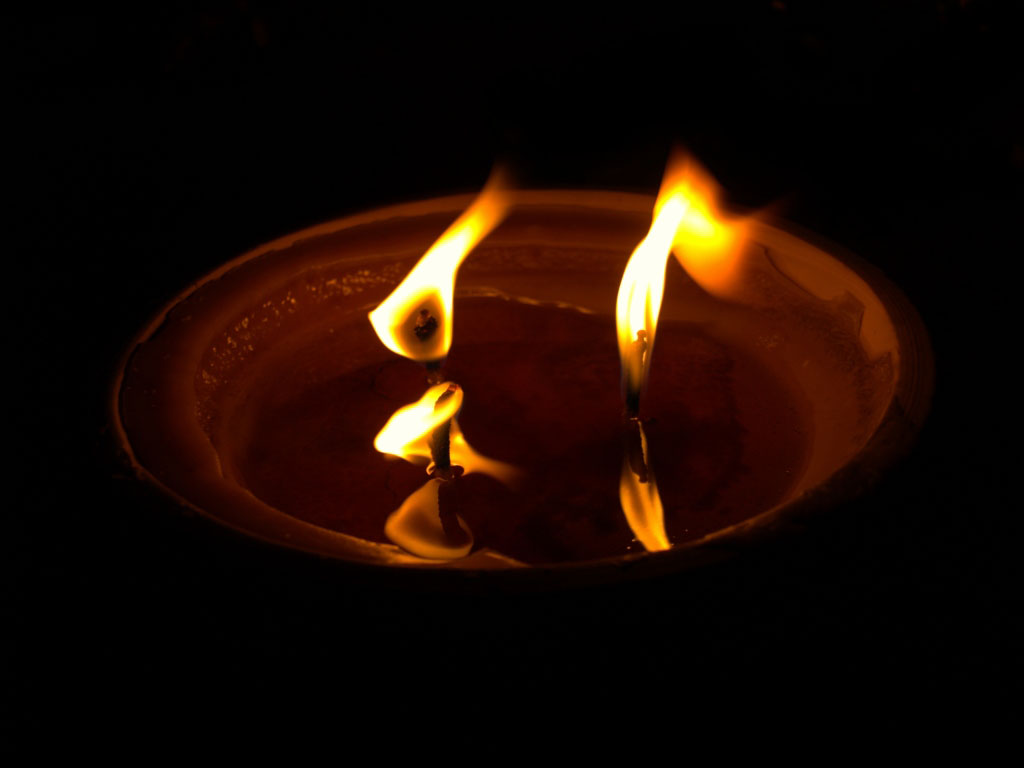 This year, for the first time in 11 years, during this November time, I visited the graves of my relatives in my home region. Well-known cemeteries with a thousand lights make an impression and provoke reflection on life and death.
This year, for the first time in 11 years, during this November time, I visited the graves of my relatives in my home region. Well-known cemeteries with a thousand lights make an impression and provoke reflection on life and death.
Recent Comments